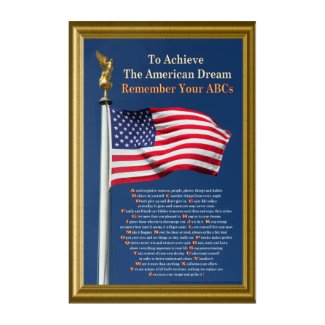Understanding the “Racial Resentment” Scale
After Hilary Clinton accused 50% of Trump supporters of belonging to a “basket of deplorables,” the liberal progressive machine marshaled “evidence” to back up their candidate’s claim. They are frequently citing the research summarized by this economist article, to support the claim that Trump supporters are more racist than Clinton supporters because, on average, they score higher on the “racial resentment” scale.
The “Racial Resentment” scale was designed to measure “subtle hostility towards African Americans,” after political science researchers found that Americans displayed less overt racial prejudice over time in their survey responses. Unwilling to accept that racism was declining in America, these researchers devised a new definition of racism, one which relied on the assumption that people who don’t support public programs targeting minorities (race-conscious programs) are actually revealing a subtle form of racism. The researchers deployed a battery of questions on the ANES to identify what they called, “racial resentment,” as opposed to overt racial prejudice.
Excerpt from Feldman and Huddy article discussing the “racial resentment” scale:
“Racial resentment is measured with either a short scale comprised of four items or a longer version made up of six items that tap the notion that blacks don’t try hard enough and receive too many government favors (Kinder and Sanders 1996). Respondents are asked to agree or disagree with all six, or the first four, of the following statements:
(1) “Irish, Italians, Jewish, and many other minorities overcame prejudice and worked their way up. Blacks should do the same without any special favors.”
(2) “Over the past few years blacks have gotten less than they deserve.”
(3) “It’s really a matter of some people not trying hard enough; if blacks would only try harder they could be just as well off as whites.”
(4) “Generations of slavery and discrimination have created conditions that make it difficult for blacks to work their way out of the lower class.”
(5) “Government officials usually pay less attention to a request or complaint from a black person than from a white person.”
(6) Most blacks who receive money from welfare programs could get along without it if they tried.”
Items 2, 4, and 5 are reverse scored in the final resentment scale.”
This battery of questions revealed that a significant proportion of the population harbored feelings of “racial resentment,” especially conservatives. The researchers were overjoyed! They interpreted the results, which have remained stable over the last few years, to mean that Americans, particularly conservatives, are still the racist, bigoted, ignorant fools that liberal university professors have always believed them to be. They’re just doing a better job of hiding their prejudice, masked as a lack of support for race-conscious programs.
Since the advent of the “racial resentment scale,” it has been widely applied as evidence that conservatives are less supportive of Obama because they are “racist.” That conservatives don’t approve of affirmative action programs because they are “racist.” That conservatives support Trump because they are “racist.” This scale forms the empirical basis for nearly every argument you run into in current academic research and the media that accuses conservatives of harboring an underlying racial prejudice, which determines their policy positions.
Given its importance in positing a racial motivation for nearly every domestic conservative position, the scale deserves closer scrutiny. Does this scale actually pick-up attitudes of racism and prejudice, or does it pick up attitudes of self-reliance, individualism, and other traditionally conservative principles? It turns out that a couple of researchers from Stony Brook, Feldman and Huddy, set out to answer this question. I’ve selected some quotes from their published research on the topic that represent their core findings.
“Racial resentment clearly conveys racial animosity among white liberals. Increasing levels of resentment among liberals are associated with a steep decline in support for scholarship programs for black but not white students. And these effects are quite independent of ideology or other general political principles. The findings for white conservatives are less clear cut but suggestively support the resentment as-ideology thesis. As resentment increases, conservative support for the scholarship program declines regardless of the race of its intended beneficiaries. Thus, racial resentment shapes conservative opposition to the scholarship program but is not clearly racial in flavor.”
“Consistent with the expectations of new racism researchers, resentment accounted for racial bias in support of the experimental college scholarship program examined in this study, reinforcing its role as a measure of racial prejudice. But these effects were confined to self-identified liberals. Racial resentment did not explain racially biased program support among conservatives and was not linked to other negative racial attitudes among them. This leaves the concept of racial resentment in real doubt. If resentment measures prejudice among liberals but not conservatives it cannot function successfully as a broad measure of racial prejudice.”
What are we to make of this? Here’s the short story: scoring high on the “racial resentment” scale means that you are more likely to be motivated by racism if you’re a liberal, but scoring high on the same scale if you are a conservative, means that your policy preferences are more likely to be motivated by conservative principles.
I’m sick of being called racist, when I’m actually principled. I’m sure many of you are too.
-Ms. Constitution






